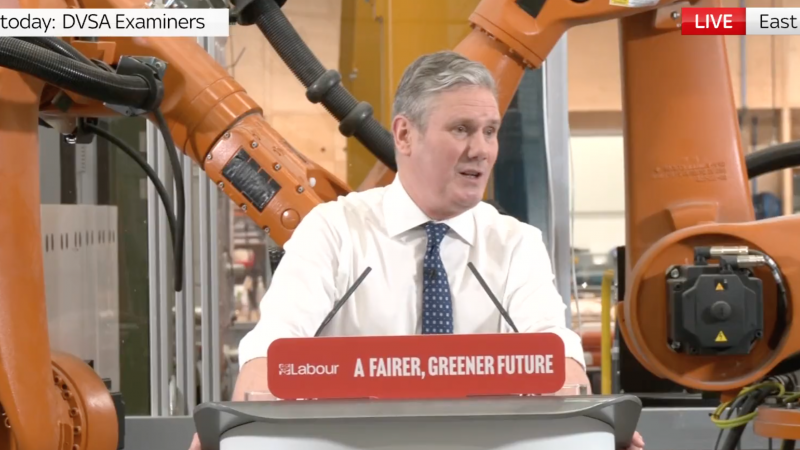
Arguably the most radical aspect of Labour’s policy vision so far has been the party’s commitment to transform the way power is exercised in this country – both economically and politically. The promise of a new ‘take back control’ bill was the big idea in Keir Starmer’s new year speech, including greater devolution and more power for communities over local growth. The ‘Community Right to Buy’ scheme has been a centrepiece announcement.
This is a welcome step. Firstly, in its substance; the UK is incredibly centralised and too often local people feel cut off from the decisions that impact on their lives. Secondly, in the political direction; the bill is about responding to some of the underlying reasons behind the Brexit vote and offering a transformative vision that goes beyond the Conservatives’ meek ‘levelling up’ agenda.
But the take back control bill will only realise its true potential if it adds a third dimension to the economic and political powers promised. What it must also ensure is that local communities are socially connected enough to take advantage of the greater powers on offer – that divides are broken down and communities are in a position to come together and make the best decisions for their local area. To put it another way, the UK needs a strong social infrastructure to underpin a transformed economic and political infrastructure.
The truth is we are currently far from this. Ethnic, age and educational divides are no surprise to anyone after the Brexit years, but Jon Yates’ recent book Fractured highlighted starkly the continuing disconnection we see. Half of Britons with a degree have almost no close friends without one. Under-35s enjoy just a quarter of the interactions with older generations that would be the case if their friendships mirrored the mix in the community. Around 50% have friends exclusively from their own ethnic group. How worrying is that, and how can we expect communities to unite on a common footing to make critical economic and political decisions as long as this persists?
Our fractured society is closely linked to the loneliness epidemic that affects people young and old. At a time when we should be encouraging different generations to come together, half of over-70s say their closest companion is the TV rather than another human. According to the Campaign to End Loneliness, half a million older people go at least five or six days a week without seeing or speaking to anyone. This is while 38% of young people aged 16 to 29 say they “often”, “always” or “sometimes” feel lonely.
We’ve got to ask ourselves: how inclusive and effective can community-led initiatives be when people know so few others in their local area and when many barely leave their own home? A recent report by The Cares Family and Power to Change put it well: “In the absence of strong and diverse social networks, communities are less capable of banding together and of seizing opportunities to shape their local area – their collective agency is constrained substantially.”
The disconnection crisis has undoubtedly been worsened by the hollowing out of public services and spaces under damaging Conservative-led austerity. Just shy of 1,000 youth centres closed in the decade between 2010 and 2020, while community hubs and libraries shut en masse. There are quite simply far fewer places where people can meet their neighbours. Reversing these destructive trends would provide a huge boost to Labour’s take back control mission. Stronger social connections mean higher levels of trust and empathy for different groups and a greater ability to achieve common goals.
What can Labour do to rebuild our social infrastructure? It is impossible to ignore the impact greater funding would have, given out at a local level to community projects that bring people together. The work of The Cares Family to strengthen ties between older and younger people in big cities and of GoodGym to combine a social connection mission with getting fit are great examples of organisations whose impact would be widened.
The reality is that, if successful at the next election, Labour will inherit a difficult financial situation. Policies not requiring lots of money are going to be attractive. What about ideas such as a better shared citizenship education, doing more to link up different faith schools, putting social connection at the forefront of housing and planning policy and creating shared public spaces in social care settings like care homes and housing-with-care, which can be hubs for the whole area?
The possibilities for an enhanced social infrastructure are limitless and span pretty much all government departments, which is why there needs to be central direction to this – a new national commission to take an overarching view on how we can create a more connected country.
While the transformative potential of Labour’s take back control bill is immense, communities will only be able to take full advantage if they are more closely connected. Greater economic and political power requires greater social power too.




More from LabourList
‘Labour won’t stop the far right by changing leaders — only by proving what the left can deliver’
‘Cutting Welsh university funding would be economic vandalism, not reform’
Sadiq Khan signals he will stand for a fourth term as London Mayor